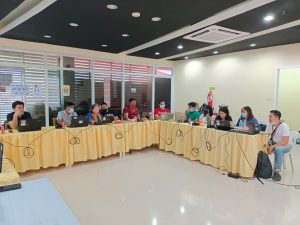
As the Department of Social Welfare and Development (DSWD) gears toward devolution of some of its programs and services, its KALAHI-CIDSS program proposed a system that will enhance, simplify, and ease access of information by the community to partner local government units and stakeholders.
KALAHI-CIDSS Caraga’s Engineering Unit presented on Friday, April 22, the Planning, Implementation and Post-implementation Engagement Leading Into Non-stop Empowerment through Community and LGU partnership (PIPELINE E-Connect).
PIPELINE E-Connect is an online electronic system for the community involved in Community-Driven Development to interact, track, monitor, coordinate with partners and stakeholders; as well as enable them to share experiences, good practices, and ideas through the sub-project planning, implementation, operation and maintenance.
Since community development and economic improvement rely on the needs and access of basic service facilities, one of the factors that needs to be address is the facilitation of technical assistance in compliance to the process and requirements of community infrastructure facilities.
In some cases, other priority needs require bigger amount that cannot be catered by the KALAHI-CIDSS program but need compliance of technical documents for lobbying and endorsement of funds to other partner agencies.
Thus, a need for easy access for tracking and monitoring during sub-project implementation to those areas with access to internet is needed.
KALAHI-CIDSS is one of the poverty alleviation programs of the government. It uses CDD (Community-Driven Development) as the over-all community development approach and strategy. The CDD approach ensures that development priorities are addressed in a participatory, collective, inclusive, and in demand-driven way.

